Gait and locomotion
The assessment of gait is an important part of research into
conditions that affect the central and peripheral nervous system. However, there are many ways
to measure gait, and even more parameters to measure.
Gait can be measured in a variety of ways. From manual methods to sophisticated automated systems. Every method has its advantages and being informed on them makes sure you have the right tool for the job.
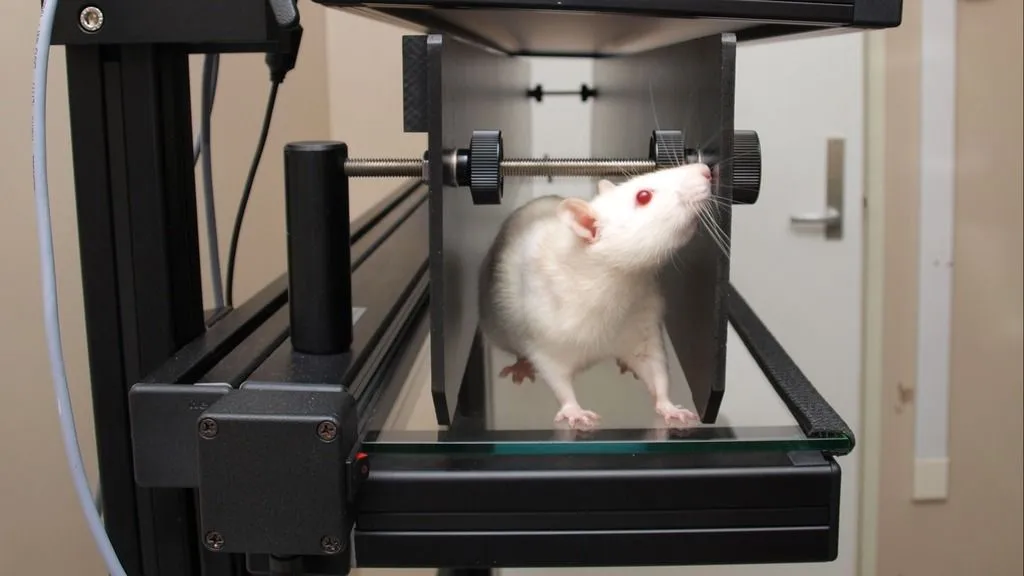
What is gait & locomotion?
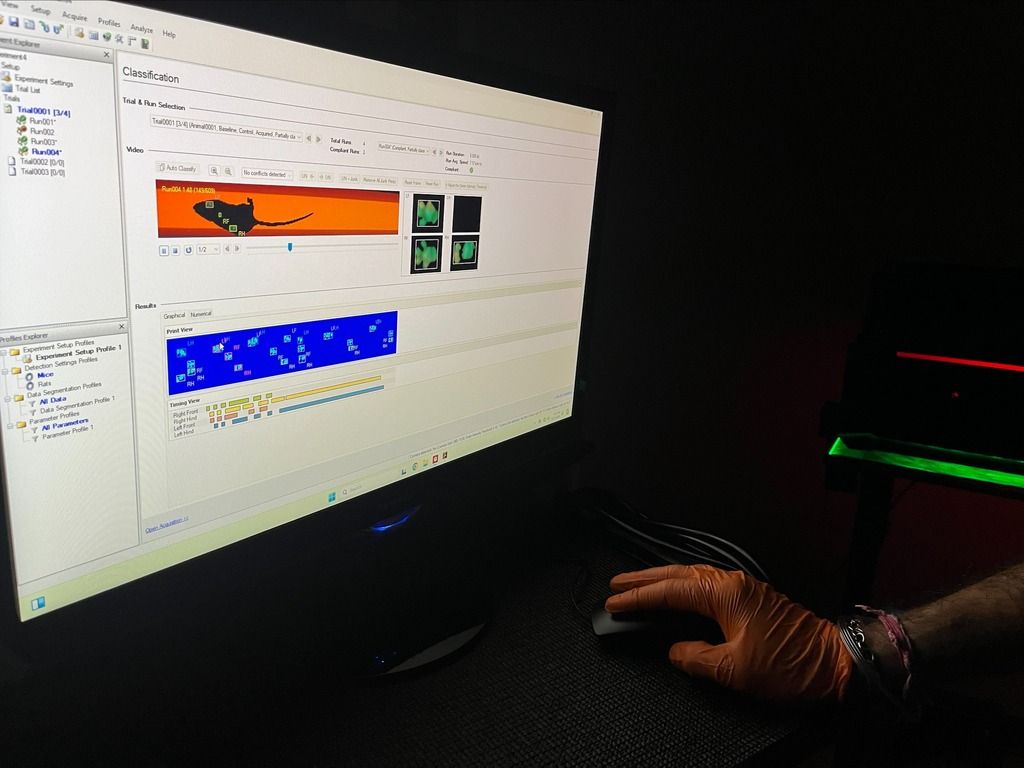
The gait cycle is the repetitive movement of a paw, occurring while the animal is walking. It begins when the heel of the rodent touches the ground (defined as initial contact) and ends when that same heel touches the ground again. The gait cycle can be divided into two phases:
- The stance phase: the paw is touching the ground, which starts with braking and ends with propulsion.
- The swing phase: the paw is moving in the air.
Many conditions that affect the nervous system influence motor & cerebral function. Gait is a great way to observe how interventions affect the way these conditions progress and are therefore essential in developing treatments.
Why should I measure gait and locomotion?
There are many conditions and diseases that affect the gait of an animal. Humans that suffer from these conditions are often examined by looking at their gait. Therefore, observing gait in your model animals has great translational value. Some conditions that have an influence on gait are:
- Ataxia
- Parkinson's
- Alzheimer's
- Injuries (TBI, SCI, SNI, Pain)
- Arthritis

Gait research webinar
Data storytelling: a CatWalk XT tale
Join Jason Rogers, for CatWalk XT: How and why to use data to tell a compelling story. In this webinar, we tell you more about CatWalk XT understanding the main parameters, and use CatWalk XT data to describe research models such as arthritis, spinal cord injury, and traumatic brain injury.
How do you measure gait and locomotion?
There are a variety of ways to measure gait in rodents. Traditionally, researchers have used paw inking to manually measure the gait parameters. However, nowadays there are more automated and accurate ways to measure gait and locomotion.
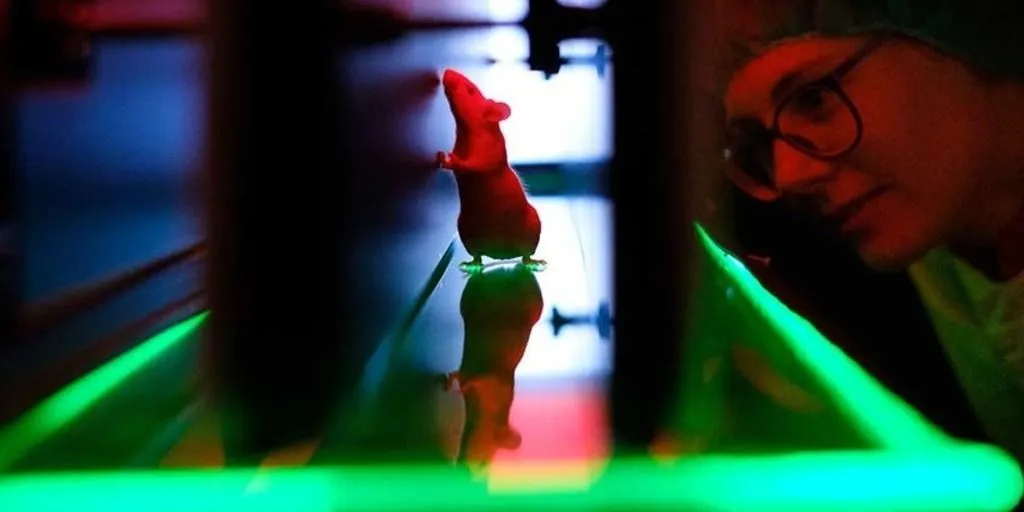
Free walking
During free walking an animals gait is observed while walking across straight line. One version of free walking is the paw-inking methods. However, this method is time-consuming and can be inaccurate. Automated systems like CatWalk XT allow you to measure a great variety of parameters in a fraction of the time.
- Free walking causes less stress than treadmill systems, therefore making results more reliable
- Automation makes data more accurate and gives more options for parameters to measure
- Measuring gait on a straight walkway represents human gait analysis more than treadmills or open fields
Therefore, the test with the highest translational value for disorders that impact gait also features some sort of free walking.
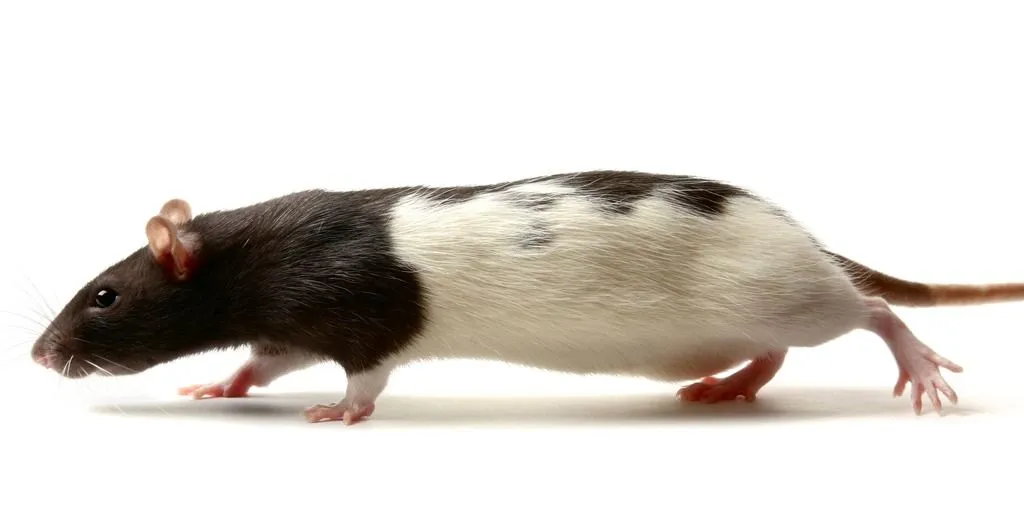
BBB scoring
The Basso, Beattie, and Bresnahan (BBB) scale is a widely used method for assessing locomotor recovery after spinal cord injury in rodents. In BBB testing, animals are observed in an open field, and their movements are scored based on specific criteria like joint movements, coordination, and paw placement
- Allows for the assessment of severly injured animals.
The problem a researcher might encounter with BBB scoring is that it has to happen live and is subjective to the observer. That is were The Observer XT from Noldus comes in. With The Observer you annotate live but also at a later date. Data is easily recorded and analyzed and exported, saving time converting from paper to computer.
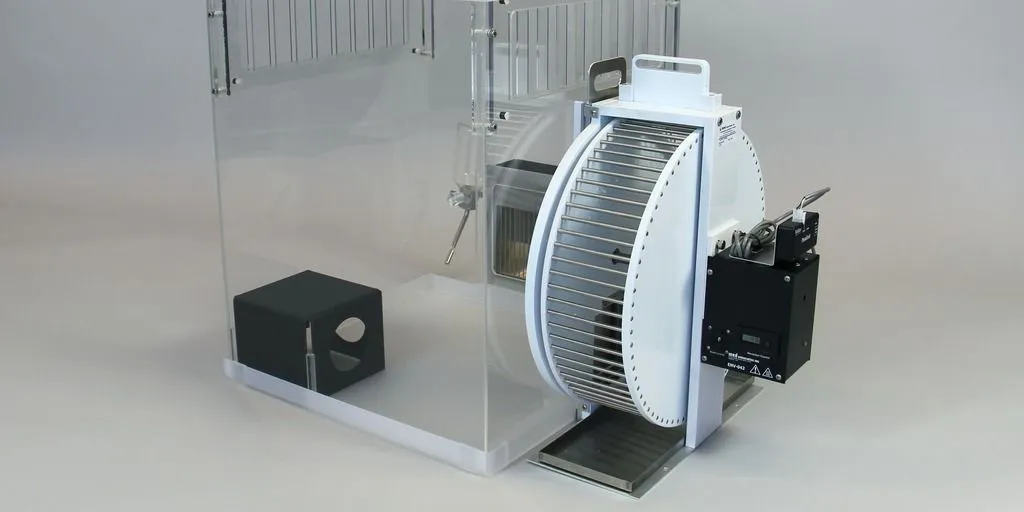
Running wheel
The running wheel is a method to test voluntary exercise and activity in rodents. Usually the wheel is included in a home-cage to facilitate the voluntary aspect of the running wheel.
- Data is collected automatically without human intervention.
In order to use a running wheel to test locomotion, you need an automated system to track the wheel's usage. EthoVision XT and PhenoTyper are the ideal hardware and software combination to measure exercise in a running wheel.
Activity
Animals that have impaired gait are less active. Therefore, measuring how active an animal is in their environment gives a good indication of the effect of environmental conditions and medical interventions and conditions. However, manually measuring overall activity over time is laborious and time-consuming.
With EthoVision XT you can automatically track many different types of animals and easily record their activity over an extended period of time.
Are you looking for advice on your application?
Do you want to learn more about how to apply Noldus products to your
research, or do you need advice from our team of behavioral experts?
Noldus is here to assist you throughout the whole process.